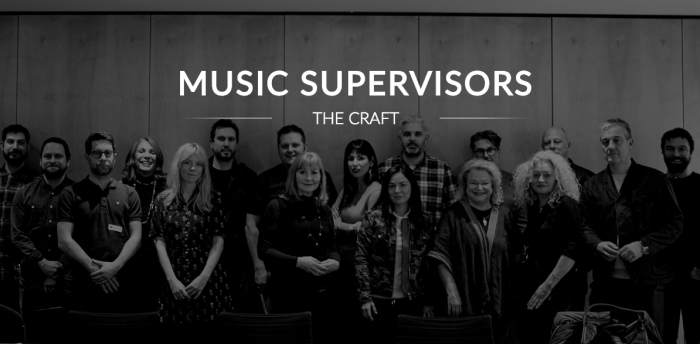By Ruth Simmons / UK & European Guild of Music Supervisors – Senior Board
Hear what Ruth Simmons, Soundlounge CEO & Guild Board Member thinks on the subject

With the UK and European Guild of Music Supervisors having just launched, there has obviously been a lot of discussion by the new Board on the vexing question: what actually is a Music Supervisor?
The official definition used by the US Guild of Music Supervisors is very comprehensive: ‘A Music Supervisor is a qualified professional who oversees all music related aspects of film, television, advertising, video games and any other existing or emerging visual media platforms as required. The Music Supervisor provides professional quality service that combines creative, technical and management expertise with relevant proven experience. This specialised combination of diversified knowledge and unique skills is integrated into all stages of development, pre-production, production, post-production, delivery and strategic marketing of the project with regard to all music related elements, combines creative, technical and management expertise and all with relevant proven experience.’ Now, if that is all true it is one helluva job spec for one person!
So, what is a Music Supervisor?
Some focus on finding music for film and TV trailers, others on games, while more than a sprinkling work solely on advertising. There are also people at the publishers and labels – the actual Rights Owners – who also have the job title of Music Supervisor. No wonder there’s confusion about the role.
The skills and talents demanded for each of these areas vary enormously. For film, TV and games it means working with a director, producer and editor to find multiple tracks that help support the narrative unfolding on the screen. This is an organic process over several months, with the Music Supervisor brought in at various stages of planning, and can involve both existing and original commissioned music.
With advertising, however, the Music Supervisor is looking for that one piece of music that gives one message and sets context for one situation – and does it in less than 30 seconds [in today’s online market it has to engage a viewer in less than 4 seconds before they hit the ‘Skip Ad’ button!]. In addition, the final edit may change right before play-out, presenting the further challenge of securing in a few days another track that is available and within budget while keeping the agency creative team and the brand happy. There’s no time to test the impact on the consumer so the client is totally reliant on the intuition of the Supervisor that the new music direction will work. This final choice of music is often a source of tension.
I am constantly in awe of how many great creative music minds there are around – people who have the most extensive and eclectic music knowledge. Synch ideas are being discovered from all walks of music – DJs, ex A&R from record companies, composers, musicians, publishing synch departments and even the mate who just seems to know every track and every band that ever was. But a great creative music mind does not a music supervisor make.
The remuneration for the creative idea, however is not proportional to the quality of the idea itself, sometimes too often requested and given for free! Many people who are presenting brilliant creative music ideas feel, even if they are not that comfortable with the rights process, that they have to say yes. They believe that if they are to be fairly remunerated, they are obliged to do the licensing, so that they can earn a percentage of the synch fee, which is where clients have historically been happy to pay.
It is important to us as the Guild that we encourage new talent and provide our clients with a kite mark of level and areas of competence. We as a group recognise the difference between a great creative talent and someone who has the added knowledge and skills to make that idea happen.
Maybe the Guild will be able to introduce a system where Producers can differentiate between those who are good at creative ideas and those who are good at the negotiation and the licensing work and let them work in tandem. My suggestion – how about we do a Chris Martin and Gwyneth Paltrow and consciously decouple the creative process from the legalities and paperwork? Clients could then have the best of both worlds knowing they were getting the best creative minds on the job and that they were in safe hands when it came to the licensing. That way everybody wins.
If you’d like to have your say on this or any other topic then let us know at info@guildofmusicsupervisors.co.uk
